PEOPLE
- Steering team
- Co-investigators
- Project Assistant Professor
- Project Researchers
- Researchers
- Research collaborators
- Research Assistants
- Graduate Student Members
- Administrative staff
- Office
Steering team
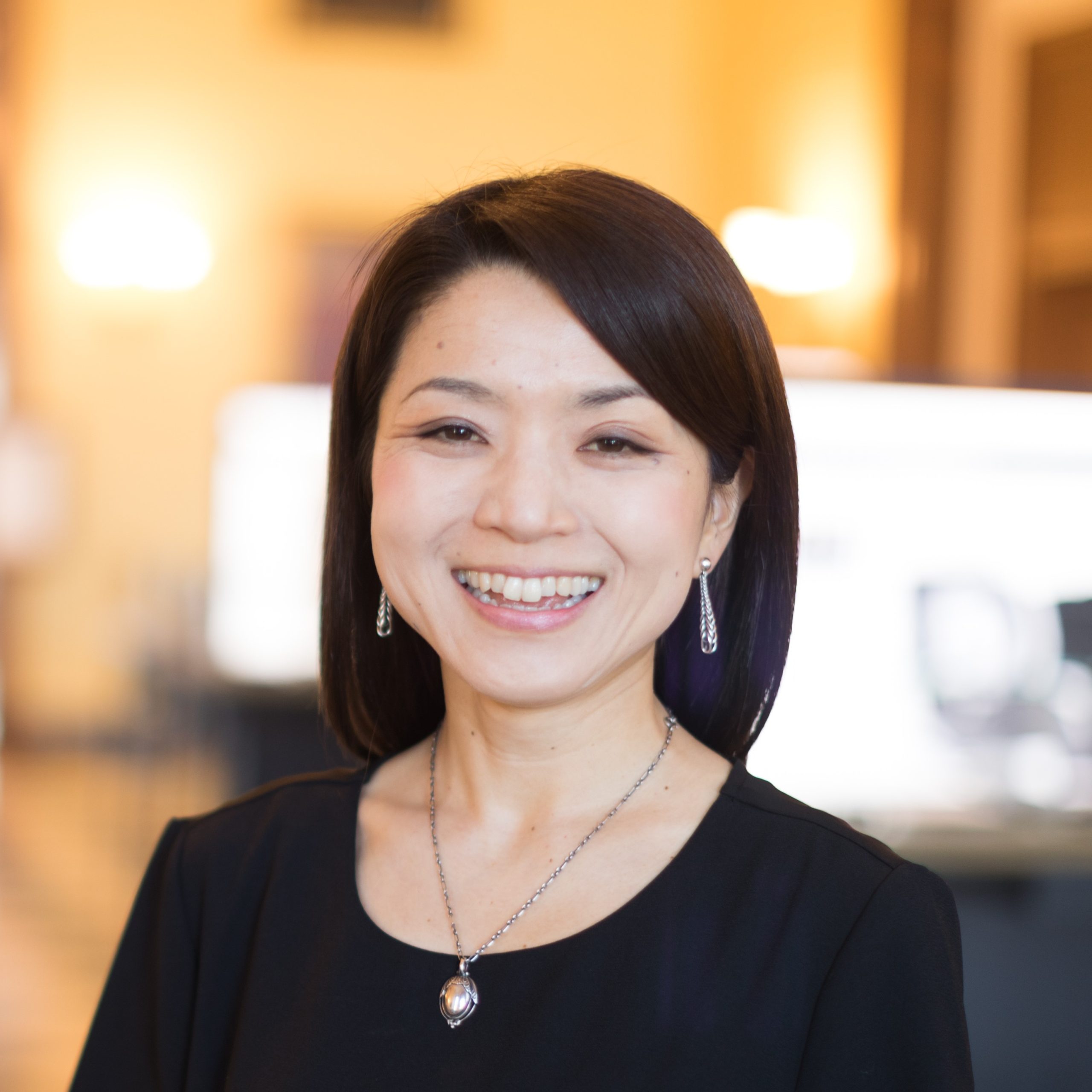
Ai Hisano
Ai Hisano is Associate Professor at the Graduate School of Interdisciplinary Information Studies at the University of Tokyo. She specializes in the history of the senses, the history of technology, and business history with particular focus on the twentieth-century U.S. history. Her recent publication includes Shikakuka suru Mikaku: Shoku wo Irodoru Shihonshugi [Visualizing Taste: Capitalism and a Color of Food] (Iwanamishoten, 2021). She has previously published Visualizing Taste: How Business Changed the Look of What You Eat (Harvard University Press, 2019), which won the 2020 Hagley Prize in Business History (Business History Conference) and the 2020 Shimizu Hiroshi Book Award (Japanese Association for American Studies). She received a PhD in History from the Hagley Program in the History of Capitalism, Technology, and Culture at the University of Delaware. She served as a Newcomen Postdoctoral Fellow in Business History at Harvard Business School (2016–17) and taught at the Graduate School of Economics at Kyoto University (2017–2021).
For further information:https://www.aihisano.com

Kaori Hayashi
Kaori Hayashi is Professor of Media and Journalism Studies at the Graduate School of Interdisciplinary Information Studies, and currently Executive Vice President of the University of Tokyo. She is a member of steering team of the B’AI Global Forum. Hayashi also serves as the director of the English medium graduate program “Information, Technology and Asia (ITASIA) of the department since 2017. She has also served as Managing Director of the University of Tokyo Newspaper as well as a member of Broadcasting Ethics and Program Improvement Organization (an independent self-regulatory organization of the broadcasting industry in Japan) and a board member of the Deutsches Institut für Japanstudien (German Institute for Japanese Studies). She was a Visiting Scholar at Northwestern University, at Goldsmiths, University of London as well as at Freie Universität Berlin as a recipient of the SSRC/Abe Fellowship for the year 2016-17. Her most recent English publications include “The Silent Public in a Liberal State: Challenges for Japan’s Journalism in the Age of the Internet.” In The Crisis of Liberal Internationalism. Japan and the World Order. Edited by Yoichi Funabashi and G. John Ikenberry. Brookings Institution Press, 2020, 325-358. “A journalism of care”, In Rethinking Journalism Again. Societal Role and Public Relevance in a Digital Age. Edited by Chris Peters and Marcel Broersma, Routledge, 2016, 146-160. She has also edited and published a number of books and papers in Japanese, including “足をどかしてくれませんか。メディアは女たちの声を届けているか”(Take Your Feet off Our Necks. Is the Media Delivering Women’s Voice?)in 2019, in which the authors argue the need and importance of gender perspectives and sensitivity in Japan’s public sphere, as well as “メディア不信 何が問われているのか (Media Distrust: What are the real issues?”) in 2017, in which she compares media distrust in the U.S., U.K., Germany and Japan.
For further information:http://www.hayashik.iii.u-tokyo.ac.jp/

Yujin Yaguchi
Yujin Yaguchi is Professor at the Graduate School of Interdisciplinary Information Studies and Graduate School of Arts and Sciences, and currently Vice President of the University of Tokyo. He serves as the Executive Manager of the B’AI Global Forum. His research focuses on cultural studies of the United States, especially on the cultural dynamics of the Pacific. He has also been involved in English language education and international education of the university and is currently exploring the use and social significance of AI for these areas.
For further information:https://yaguchiyujin.com/bio-j.html
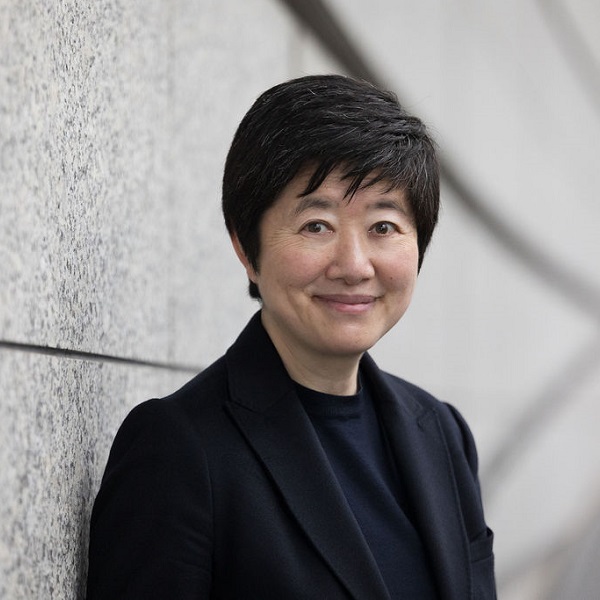
Yuko Itatsu
Yuko Itatsu is Professor in the Interfaculty Initiative in Information Studies, the Graduate School of Interdisciplinary Information Studies, University of Tokyo. She is a social and cultural historian specializing in quotidian practices of media, leisure and power. She is particularly interested in inclusivity of social minorities and media representation of gender, race and ethnicity. She is also interested in the application of artificial intelligence in leisure activities for social inclusivity as well as the possibility of marginalizing populations. She is also interested in the geopolitics of AI development and governance observed from the Asia Pacific region.She studied at the University of Southern California as a Fulbright Scholar and received her Ph.D. in History.
For further information:https://researchmap.jp/itatsu?lang=en
https://itatsulab.jp/
正方形修正済.png)
Takane Ito
Takane Ito is Director of UTokyo Center for Coproduction of Inclusion, Diversity and Equity, and currently Vice President of the University of Tokyo. Her research field is in linguistics, with a particular focus on the grammar of words: she employs both theoretical and experimental approaches to elucidate the mental and/or neural mechanisms involved in the processing of words. She is also interested in the difference between human and computer processing of language.
For further information:https://researchmap.jp/Takane_Ito?lang=en
Co-investigators
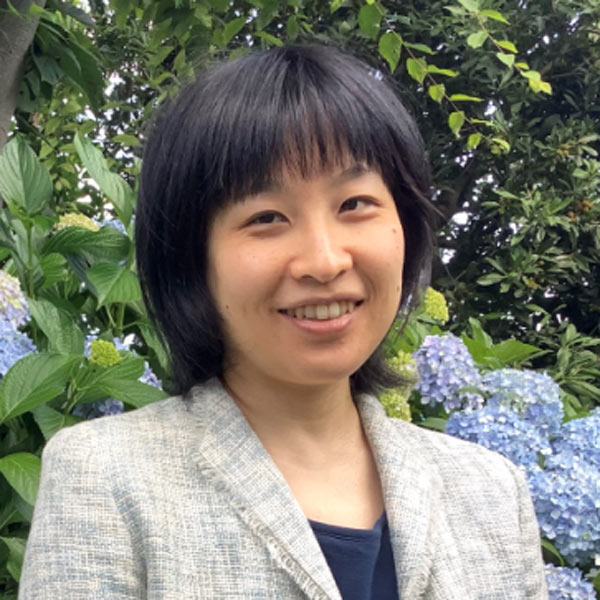
Arisa Ema
Arisa Ema is Associate Professor, Tokyo College, University of Tokyo and Visiting Researcher at RIKEN Center for Advanced Intelligence Project in Japan. She is a researcher in Science and Technology Studies (STS), and her primary interest is to investigate the benefits and risks of artificial intelligence by organizing an interdisciplinary research group. The University of Tokyo Excellent Young Researcher, 2021.
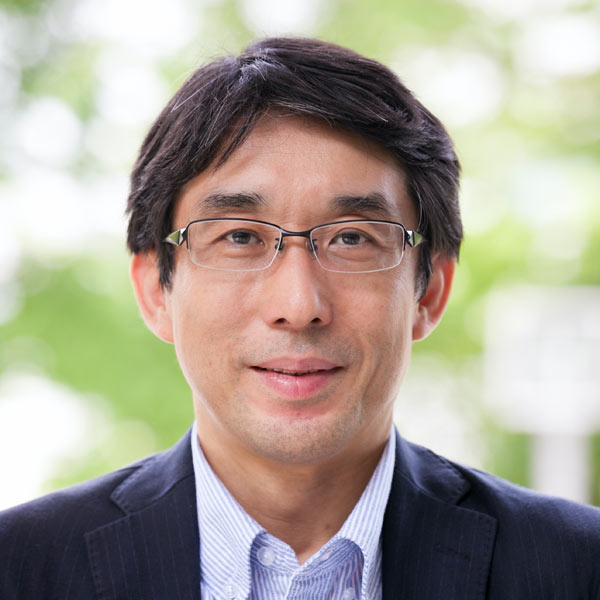
Osamu Sakura
Dr. Osamu Sakura, is Professor of Faculty of Humanities and Social Sciences, Jissen Women’s University, Project Professor of Interfaculty Initiative in Information Studies, the University of Tokyo, and PI of RIKEN Center for Advanced Intelligence Project (AIP), Japan. His main interests are neuroethics and social aspects of AI and robotics. He was also engaged in the relation between experts and local people in the Fukushima disaster area. He taught in Yokohama National University (1993-2000) and worked as visiting scholar on the University of Freiburg (1995-96) before moving to current position. He published some hundred of journal papers and several books.
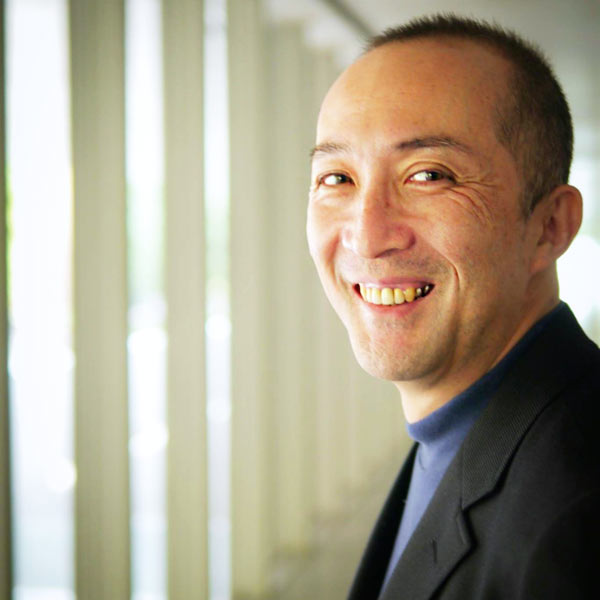
Shin Mizukoshi
Shin Mizukoshi is Professor of Media Studies Major, Faculty of Sociology at Kansai University in Osaka and Visiting Professor of the Interfaculty Initiative in Information Studies at the University of Tokyo. He has been working on critical and practical media studies to try to defamiliarize and recombine the relationship between media and people with a design-oriented mind. His most recent research interest in on the robot-literacy. Mizukoshi’s recent publications include Media Studies New Edition (Open University Japan, 2022). He is the editor of a bilingual independent little magazine 5: Designing Media Ecology, and a member of Radio 5, a sister medium of the magazine 5.
For further information:https://shinmizukoshi.net
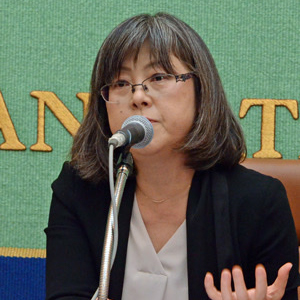
Michiko Kawahara
Michiko Kawahara is a journalist, Project Professor at the Graduate School of Interdisciplinary Information Studies, the University of Tokyo, and Visiting Professor at the Musashino University.
She was born in 1961. She studied social psychology at the University of Tokyo. 1983-2020 : She was a staff writer of the Asahi Shimbun. She has interviewed victims of sexual violence and crime. And she has been thinking about how journalism should be. 2000-2011 : She has organized a study session for journalists about “victims and the media” with the bereaved family of the Tokyo sarin gas attack.
Michiko Kawahara wrote books on crime victims and journalism, and on Viktor Frankl.
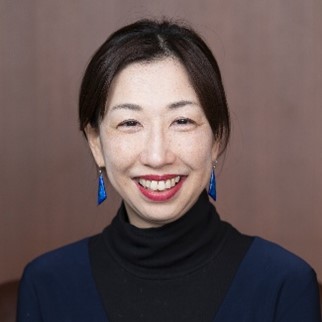
Tohko Tanaka
Professor at the Interfaculty Initiative in Information Studies, The University of Tokyo. Ph.D. in Political Science. Her areas of expertise include media culture studies, gender studies, and cultural studies. After completing the doctoral coursework at the Graduate School of Political Science, Waseda University (without a degree), she assumed her current position in 2022. Her research focuses on women’s practices in media culture, particularly through the lens of third-wave feminism and popular feminism.
Her major works include:
・The Politics of Media Culture and Gender: From the Perspective of Third-Wave Feminism (Sekai Shisosha, 2012)
・Media Studies through Gender Perspectives (co-edited, Sekai Shisosha, 2023)
・Japanese translation of There Ain’t No Black in the Union Jack: The Cultural Politics of Race and Nation by Paul Gilroy (co-translated, Getsuyosha, 2017)
・Japanese translation of Feminism and the Politics of Resilience: Gender, Media, and the End of Welfare by Angela McRobbie (co-translated, Seidosha, 2022)
For further information:https://researchmap.jp/read0144432?lang=en
https://www.facebook.com/toko.tanaka.79
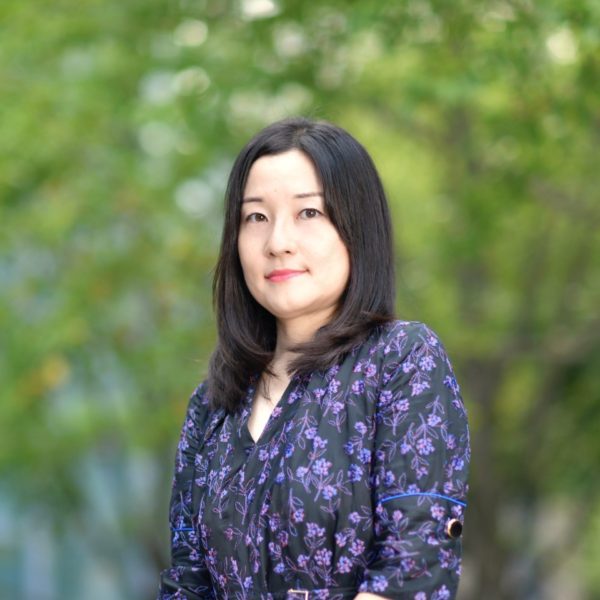
Yuiko Fujita
Yuiko Fujita is a sociologist specializing in media and culture. She holds a master’s degree in sociology from Columbia University and a doctorate in communications from the University of London. Currently, an associate professor at the University of Tokyo, Fujita conducts ethnographic research on media, culture, youth, and gender in Japan and abroad. Her publications include Cultural Migrants from Japan: Youth, Media, and Migration in New York and London (Rowman & Littlefield, 2009) and Working Mothers and Stratification (co-authored, Keiso Shobo, 2022).
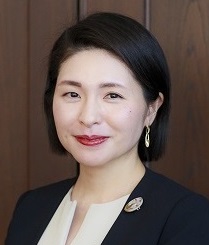
Hiromi Yokoyama
Professor, Kavli Institute for the Physics and Mathematics of the Universe, Institute for Advanced Study, UTokyo. Her specializes in the Science and technology Studies. She has proposed a “group voice” for scientific advice, a “budgetary community” in addition to a journal community for the boundary hypothesis that separates science from the rest, and the influence of “social climate” on STEM gender issues. She will attempt to quantify the Ethics of AI and Diversity (ELSI) at B’AI.
For further information:http://member.ipmu.jp/hiromi.yokoyama/en/index.html
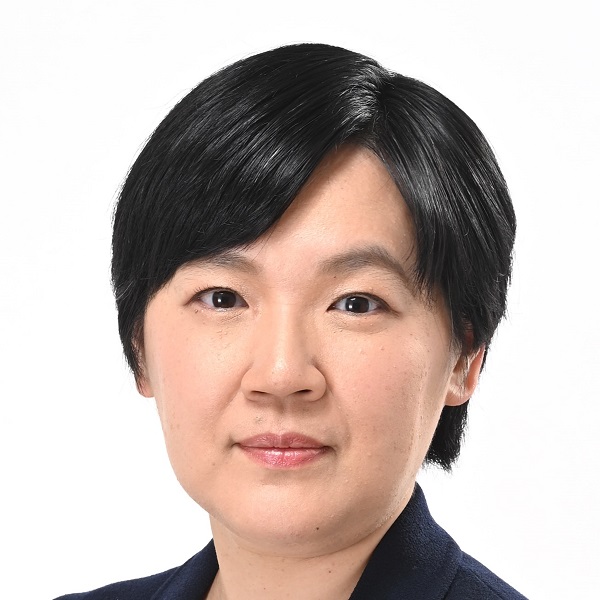
Rie Shigetomi YAMAGUCHI
Associate Professor, Social ICT Research Center of the Graduate School of Information Science and Technology. Rie Yamaguchi received PhD degree in Information Science and Technology from the University of Tokyo. She joined Information Security Center , National Institute of Advanced Industrial Science and Technology, AIST and concurrently serve in National Information Security Center at Cabinet Secretariat, now National center of Information Incident readiness and Strategy for Cybersecurity from 2007 to 2011. Current position since 2013. She is interested in Information Security and Privacy Protection research that is useful to society through using lifelog data, such as location and profile data, and its application to various applications using AI analysis.
For further information:https://www.yamagula.ic.i.u-tokyo.ac.jp/index_e.html
Project Assistant Professor
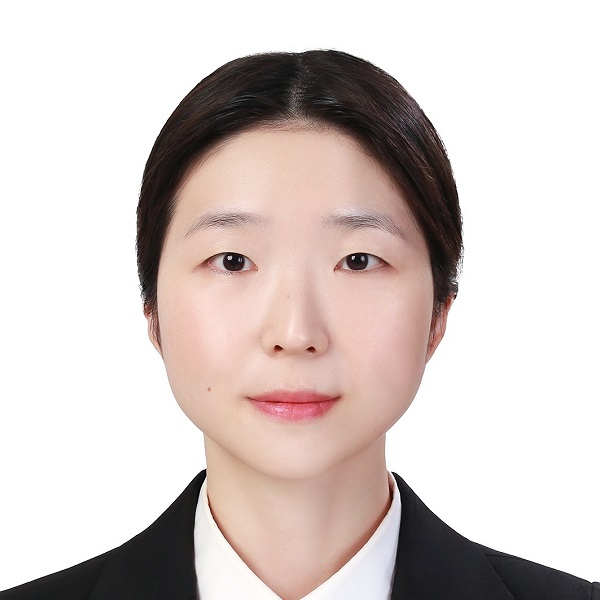
Sunjin Oh
Sunjin Oh is a Project Assistant Professor at the Graduate School of Interdisciplinary Information Studies, the University of Tokyo. Ph.D. (Sociology). Sunjin specializes in critical social theory and the history of social thought. She has been engaged in the formation of a theory that brings about a renewal of both time theory and alienation theory, reconstructing the concept of self-alienation as ‘alienation from time.’ As part of this, she is dealing with how the social reality of alienation is shaped in communication about generative AI. Her recent publications include “From “Elsewhere” to “No Place (non-lieu)”: Utopia in the Late Thoughts of Zygmunt Bauman” (2022, in Japanese).
For further information:https://researchmap.jp/ohsunjin?lang=en

Minjoo Lee
Minjoo Lee is a project assistant professor at the Interfaculty Initiative in Information Studies, the University of Tokyo. She completed the doctoral program (ABD) at the same graduate school (ITASIA Course). Her research interests lie in the fields of media studies, gender and feminist studies, and discourse analysis, with a regional focus on Japan and South Korea. She examines media discourses surrounding precarious employment and labor, as well as poverty and economic inequality in Japan during and after the Heisei era, with particular attention to television documentaries and digital media, including social media. In relation to AI, she aims to explore the various forms of inequality that AI may generate, and how the (re)production and distribution of AI-related knowledge and discourse—as well as AI literacy—could either exacerbate or mitigate these disparities.
Project Researchers

Honoka Kato
Honoka Kato is a project researcher at the Interfaculty Initiative in Information Studies at the University of Tokyo. She is currently enrolled in the Doctoral Course at the International Christian University Graduate School of Arts and Sciences. Her research interests lie in the fields of media studies and gender studies. Presently, she is conducting research on the relationship between women’s weekly magazines and the women’s liberation movement through the lens of media history. Additionally, she is interested in exploring the potential and challenges of various forms of feminist activism in digital media spaces, particularly focusing on practices surrounding podcasts.
Researchers
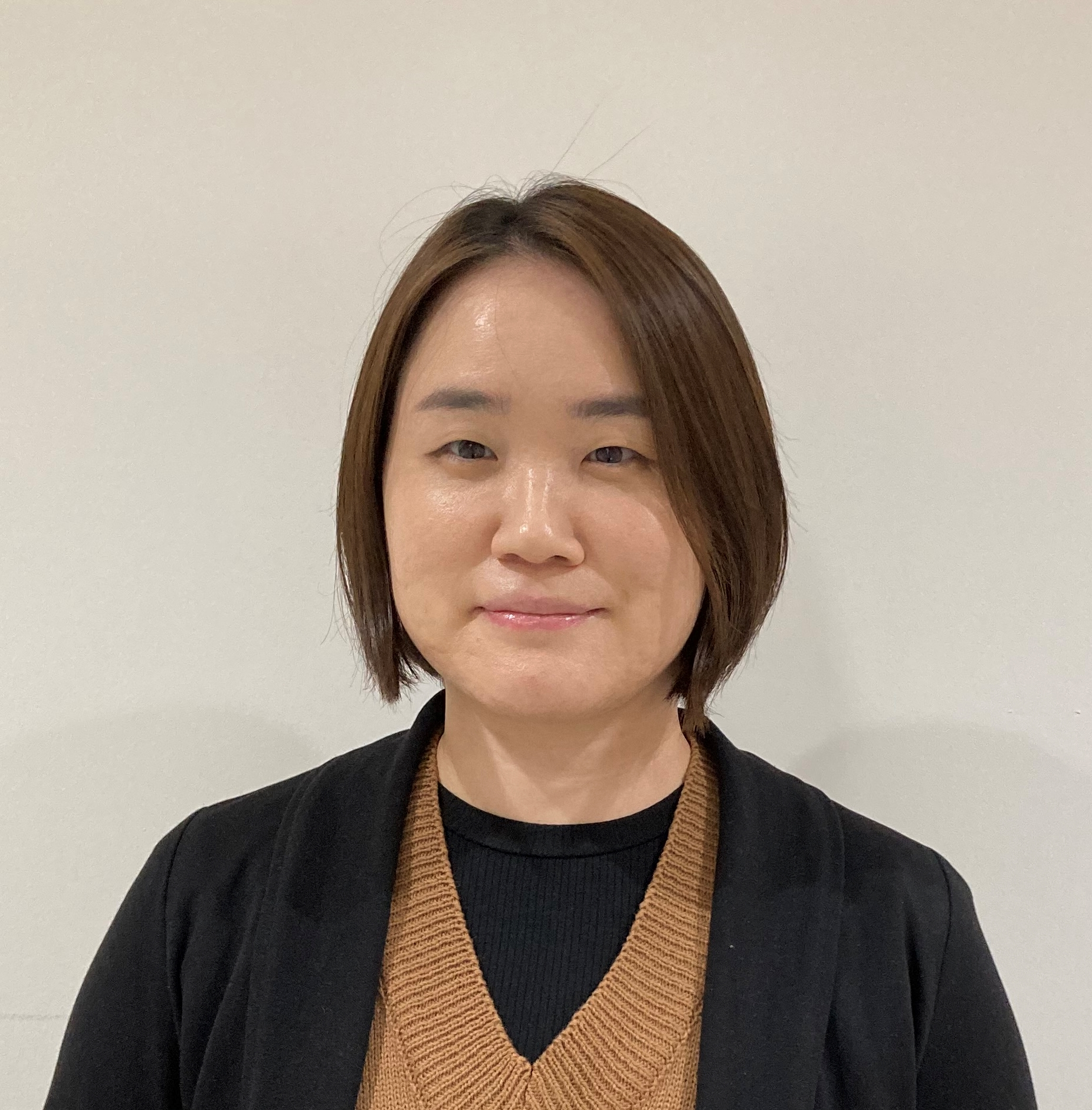
Misook Lee
Ph.D. (Socio-Information and Communication Studies). Associate Professor, Department of Communication and Culture, Faculty of Humanities, Otsuma Women’s University. Global Media Studies. She researches how “boundaries” among people are (re)constructed and strengthened, and how “boundaries” with others are crossed and “solidarity” with others is imagined and practiced from the approach of media studies, journalism studies, and historical sociology. She is currently conducting a few research projects; media discourses and journalism on social minorities, transnational social movements and media practice, and cross-national analysis of journalism cultures. She has worked as an Associate Professor, Interfaculty Initiative of Information Studies, the University of Tokyo (2022), Assistant Professor, Center for Global Liberal Arts Program, Rikkyo University (2018-2021), a Project Research Associate, Integrated Human Sciences for Cultural Diversity, The University of Tokyo (2014-2017), and a Visiting Fellow at Harvard-Yenching Institute, Harvard University (2012-2013). Her publication includes single-authored The Age of the Japan-Korea Solidarity Movement: Transnational Public Sphere and Media in the 1970s and 80s (University of Tokyo Press, 2018, in Japanese), co-authored Media Studies from Gender Perspective (co-authored, Sekaisisosha, 2023, in Japanese), and co-authored Reporting on Sexual Violence in the #MeToo Era (Routledge, 2022).
For further information:https://researchmap.jp/misooklee?lang=en
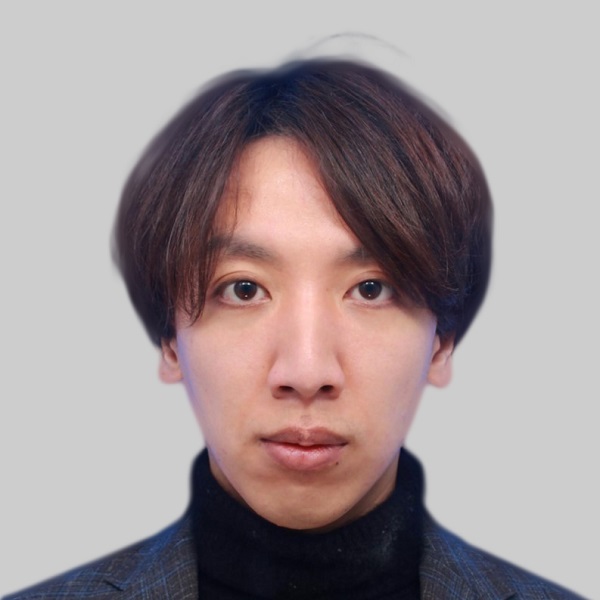
Akira Tanaka
Akira TANAKA is a Lecturer at the Department of Social Design, Faculty of Humanities and Social Sciences, Jissen Women’s University, and a Visiting Researcher of the Interfaculty Initiative in Information Studies, at the University of Tokyo. He specializes in media and journalism studies. He received his BA degree in economics from Keio University while completing the sub-major course at the Institute for Journalism, Media &Communication Studies at the Institute for Journalism, Media &Communication Studies in 2016. And then, he received his PhD in socio-information studies from the University of Tokyo in 2022. He got the JSPS Research Fellowship for Young Scientists (DC1) and then worked as an Assistant Professor at the Faculty of Design, Kyushu University before getting his current position in April 2024. He is the author of “Journalism of Silent Voices: How to Visualize Minority Opinions” (Keio University Press, to be published in 2024), and co-author of “Has Japan become ‘right leaning’? (Keio University Press, in 2020), “How was the Tokyo Olympics Viewed: Mass Media Reporting and Social Media Voices” (Minerva Shobo, in 2024).

Galina Shyndriayeva
Galina Shyndriayeva is currently a Researcher at Musashi University, Tokyo, and a Visiting Researcher of the Interfaculty Initiative in Information Studies at the University of Tokyo. She specializes in the history of science and technology and business history. Her current book project, Sensual Science: expertise, craft, and chemical invention in global perfumery, 1900-2000, focuses on the development of the perfume industry in the twentieth century. She is interested in the uses of machine learning to design and study scents. She completed her doctoral work in History of Science, Technology, and Medicine at King’s College London and Imperial College London and holds a B.A. in Romance Languages and Literatures and Classics from Harvard University. She previously taught at the University of Tokyo as a Project Assistant Professor in the ALESS Program, Center for Research and Development of Higher Education.
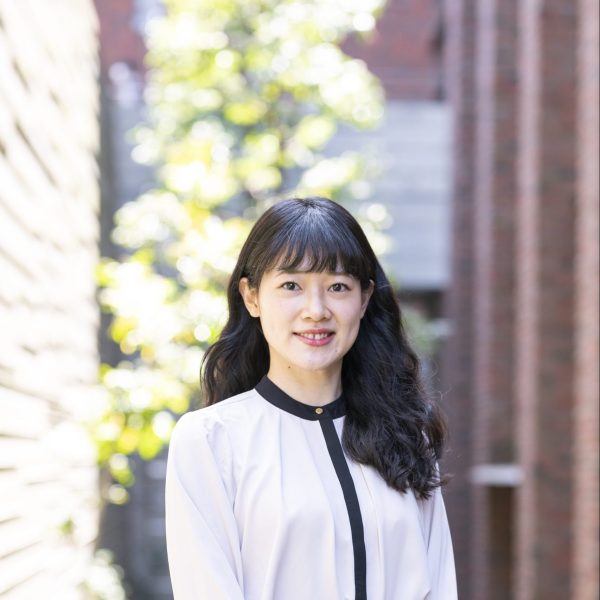
Xinqi HE
Xinqi HE is an Assistant Professor working in Rikkyo University. Her Ph.D thesis explores how migrant students experience native-speakerism throughout their language learning journey in Japan. Her recent interests lay more on the problem of language ontology, where she applies continental philosophical ideas to ask the question “what is language”? Her recent work include: Juxtaposition of English and Japanese native-speakerism: through the concept of the international university being a heterotopia. Asian Englishes. (forthcoming); The Intertwining of Native-Speakerism and Racism in the Construction of Linguistic Identity. In Kubota, R, Mielick, M, & Lawrence, L (Eds.) Discourses of Identity: Language Learning, Teaching, and Reclamation Perspectives in Japan. Palgrave Macmillan. 2022.
Research collaborators
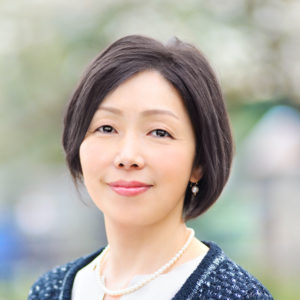
Keiko Hamada
Journalist / President, Digital Journalist Training Organization
Keiko Hamada joined the Asahi Shimbun in 1989, and has been a member of the AERA editorial department since 1999 and became Editor-in-Chief of AERA in 2014. After leaving Asahi Shimbun at the end of March 2017, she launched the Japanese edition of Business Insider, an online economic media company operating in 12 countries around the world, as Editor-in-Chief. She left Business Insider Japan at the end of 2020 and became a freelance journalist. In August 2022, she established a general incorporated association, the Digital Journalist Training Organization. She received the 2022 Social Journalist Award.
She has been a commentator on “The Shinichi Hatori Morning Show” and “Sunday Morning” and has given numerous lectures on diversity and other topics. Author of “Working Women and Guilt,” “The End of Male-Centered Businesses,” and “Before Clicking the Like Button: Internet Space and Media from the Gender Perspective” (co-author).
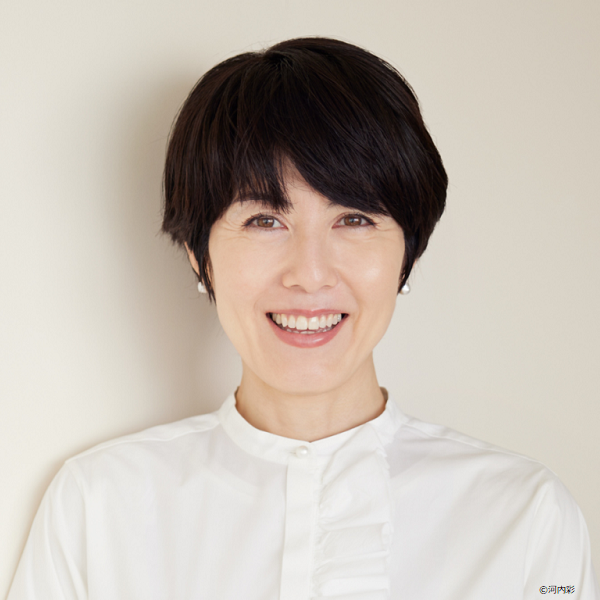
Keiko Kojima
Author, Media Personality.
Keiko Kojima appeared on TV and radio for 15 years as an announcer for TBS, winning the Radio DJ Personality Award in the 36th Galaxy Awards in 1999. Since going independent in 2010 she has been very active as a writer and speaker as well as appearing in various media channels. From 2015 to 2020 she was a Public editor at Asahi Shimbun newspaper. From 2017 to 2025 she was a Guest Researcher (at MeDi: The Association for Radical Review of Media Expression and Diversity) at the University of Tokyo’s Graduate School of Interdisciplinary Information Studies. Since 2019 she has been a Research Fellow at the Institute of Current Business Studies at Showa Women’s University.
For further information:https://keiko-kojima.com/
https://twitter.com/account_kkojima
https://www.instagram.com/keiko_kojima_/?hl=ja
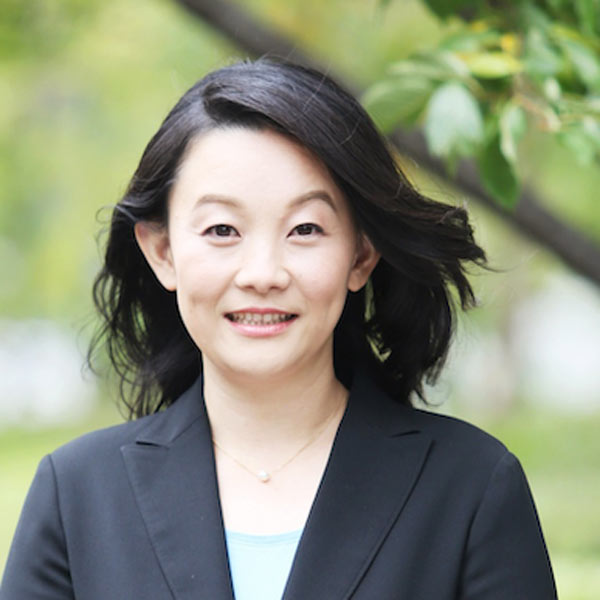
Renge Jibu
Associate Professor, Institute of Liberal Arts, Institute of Science Tokyo.
Worked as a staff writer at Nikkei Business Publications for 16 years. Fulbright Visiting Scholar at University of Michigan (2006-2007). Since April, 2021 working for present institution.
Gender Equality Plan Execution and Monitoring Committee Member at the Cabinet Office, Committee Member at Gender Equality Plan for Tokyo Metropolitan Government,
Chair of the committee of promoting gender equality at Toshima-ward.
B.A. in Law and Master of Business Administration, Hitotsubashi University
Author of : “Bread-winning wives and caring husbands: strategic exchange of gender roles”(Keiso Shobo), “Corporate communications with no gender stereotypes”(Nikkei Shimbun Shuppan), “The shock of developing country as gender equality”(Shogakukan), “Watching popular dramas with gender lens: Korea, Japan, U.S., EU” (Kobunsha), “Please don’t judge based on our gender”1-3(Chobunsha).
For further information:https://rengejibu.hatenablog.com/
https://twitter.com/rengejibu
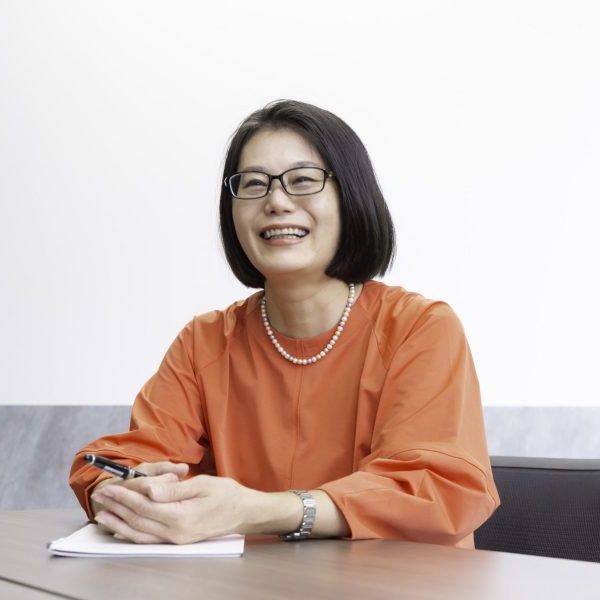
Keiko Yamamoto
Journalist, Former NHK Commentator on Gender & Equality. After completing a master’s program at the Graduate School of International Development, Nagoya University, she began her career at NHK (Japan Broadcasting Corporation). She worked at the Kanazawa Broadcasting Station, the NHK Social Affairs Division, and NHK World-JAPAN before being appointed Deputy General Manager of the News Department at NHK’s Nagoya Broadcasting Station and an NHK Commentator specializing in gender and equality issues. In September 2024, she began a new career as an independent journalist. In 2001, she founded a study group for women journalists, which has society. Recognized as a leader in Asia, she was named an Asia 21 Fellow by the Asia Society in 2009. She currently writes the column Jidai no K-Point for HuffPost, analyzing movements for gender equality.
For further information: https://keikoyamamoto.jp/
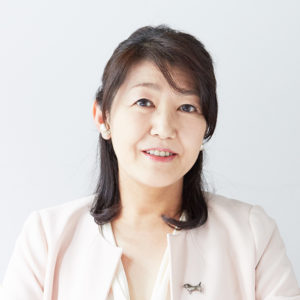
Touko Shirakawa
Touko Shirakawa is Journalist about declining birthrates, Author, and Project Professor at Professional University of Information and Management for Innovation. She graduated from Faculty of Letters, Department of Sociology, Keio University in 1984. She received her MBA diploma in Strategic Management from Chuo University in 2020.
Since 2002 to the present, she has been writing about women’s issues especially to suggest the balanced lifestyle for women’s birthing and work. Her research expertise and interest are women empowerment, SDGs and diversity management.
She is the author of several books: “The Era of KONKATSU (Marriage Hunting Era)”, co-authored with Masahiro Yamaguchi, Professor of Sociology at Chuo University, which has sold 200,000 copies in 2008. “This is where the realization of work style reform of your company goes wrong !”(2017) , “A Boundary of Harassment”(2019). She has written more than 25 books.
She served as a member of Cabinet Office Gender Equality Bureau’s “Expert Panel on Priority Policies” in 2016-2020, also served as a member of Cabinet Secretariat’s “The Council for the Realization of Work Style Reform” in 2016-2020. She also holds positions as Visiting Professor at Senri Kinran University and as Visiting professor at the Center for General Education, Showa Women’s University.
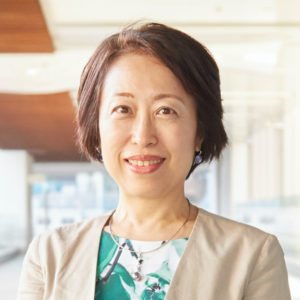
Mari Miura
Professor of Political Science, Faculty of Law, Sophia University. Ph.D. from University of California, Berkeley. Author of Welfare Through Work: Conservative Ideas, Partisan Dynamics, and Social Protection in Japan (Cornell University Press, 2012), “Persistence of Women’s Under-representation” (in Japan Decides 2017, Palgrave Mcmillan 2018), Making Our Voices Heard—Revival of Representative Democracy (in Japanese, Iwanami Shoten, 2015), editor of Japan’s Women Representatives (in Japanese, Asahi Shimbun Shuppansha, 2016), Investment in Society: Supporting Individuals and Building Communal Ties (in Japanese, Iwanami Shoten, 2018), co-editor of Gender Quotas in Comparative Perspectives: Understanding the Increase in Women Representatives (in Japanese, Akashi Shoten, 2014).
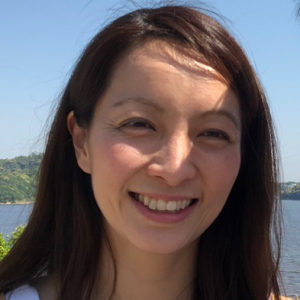
Yukiko Mishina
Yukiko Mishina is Associate Professor in the Graduate School of Informatics and Engineering, the University of Electro-Communications. She obtained her Ph.D. in chemistry at The University of Chicago and has taught at the University of Tokyo as Project Assistant Professor. Her main research involved chemical analyses of the structure and function of DNA repair proteins and development of imaging techniques for brain activities, but has now shifted her interest towards brain science and artificial intelligence, such as perception and cognitive bias in language learning, and science English language education.
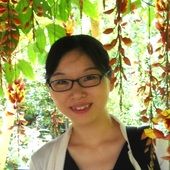
Yuko Ikkatai
Yuko Ikkatai is an associate professor of the Faculty of Human Sciences, Kanazawa University. Her research interest is public engagement in science and technology. She received her Ph.D at Graduate School of Human Relations, Keio University. She studied social interactions in birds in the field of animal psychology as her Ph.D thesis, but her interest gradually shifted to human communication in science and technology.

Alyssa Castillo Yap
Alyssa graduated from the University of Tokyo from PEAK in 2022 (B.A. Liberal Arts, International East Asian Studies) and ITASIA in 2024 (M.A.S. Interdisciplinary Information Studies), focusing on gender, disability, business innovation and artificial intelligence (AI). She continues to work on what and how technological innovation and deployment impacts regions like Southeast Asia and East Asia.
Research Assistants

Priya Mu
Priya is a doctoral student at Itatsu Lab, the Graduate School of Interdisciplinary Information Studies at the University of Tokyo. She holds an MAS in Information Studies (ITASIA Program), an ME in Architecture (Obuchi Lab) from the University of Tokyo, a BAS in Architecture from the University of Auckland, and a BE in Civil Engineering from Anna University, India. She has worked as an architectural designer in New Zealand and on regional revitalization projects in Japan. Her current research focuses on public space, community practices, and urban studies in Japan, and she also examines the social impacts of AI at the B’AI Global Forum.
For further information: https://www.priyamu.com/

Amaël Cognacq
Amaël Cognacq is a Doctoral student at the University of Tokyo. He holds a BA in Japan and East Asia Studies from the University of Tokyo and a Master in International Development Studies from Paris 1 Panthéon-Sorbonne University. He is from France, has lived in Japan, Thailand, Brazil and Morocco and worked frequently in Senegal and Belgium, notably as gender equality projects manager or evaluator. His doctoral research focuses on the influence of transnational masculinist movements on Japanese and French societies. His research focuses on online communities and digital technologies, particularly on intersectional gender and sexual minority issues related to social network algorithms and artificial intelligence.
For further information: https://www.researchgate.net/profile/Amael-Cognacq-3

Yunfan MAO
Yunfan MAO is a PhD student at the Graduate School of Interdisciplinary Information Studies, the University of Tokyo, specializing in gender, feminism, and cultural studies. She is interested in how animalistic body modifications and performances expand the boundaries of posthumanism. Her master’s thesis, “Doing Posthuman in Animalistic embodiment: Research on Furry Fandom in China,” received the 2024 Excellent Master’s Thesis Award from the Graduate School of Interdisciplinary Information Studies. Currently, in her PhD program, she is also exploring the relationship between non-human elements, including AI, and posthumanism.
Graduate Student Members

Ginger Huang
Ginger is a Master’s student at the University of Tokyo Graduate School of Interdisciplinary Information Studies. She studied Anthropology at University of Connecticut in United States and worked at consulting firms focusing predominately on digital inclusion and climate change issues before joining the master’s program. Her research interests center around the emotional experiences and expression in intimate AI and human relationships.

Hayden Hubbard
Hayden is currently a Master’s Student at the University of Tokyo Graduate School of Interdisciplinary Information Studies. He is currently studying AI from both a theoretical and
practical perspective: he is enrolled in the ITASIA program, and is also pursuing UTokyo’s STIG certification (Science, Technology, and Innovation Governance). His research focuses on
studying the gap between policy and practice regarding AI utilization in the Japanese context. Hayden has an academic background in Government and East Asian Studies, and has over 5 years of experience as an educator.

Sophia (Ruijun) Liu
Sophia (Ruijun) Liu is currently a M.A. student of the ITASIA Program at the Graduate School of Interdisciplinary Information Studies, University of Tokyo. Sophia earned her B.A. in Communication from the University of Pennsylvania and spent two years working in New York at an investment bank. As an undergraduate she co‑authored “Persuading Climate Skeptics with Facts: Effects of Causal Evidence vs. Consensus Messaging” (Research & Politics, 2024). Her current research investigates the perceived credibility of conversational AI agents when they present contentious scientific facts, and how that credibility shapes persuasive outcomes.
Administrative staff

Midori Isoda
Office
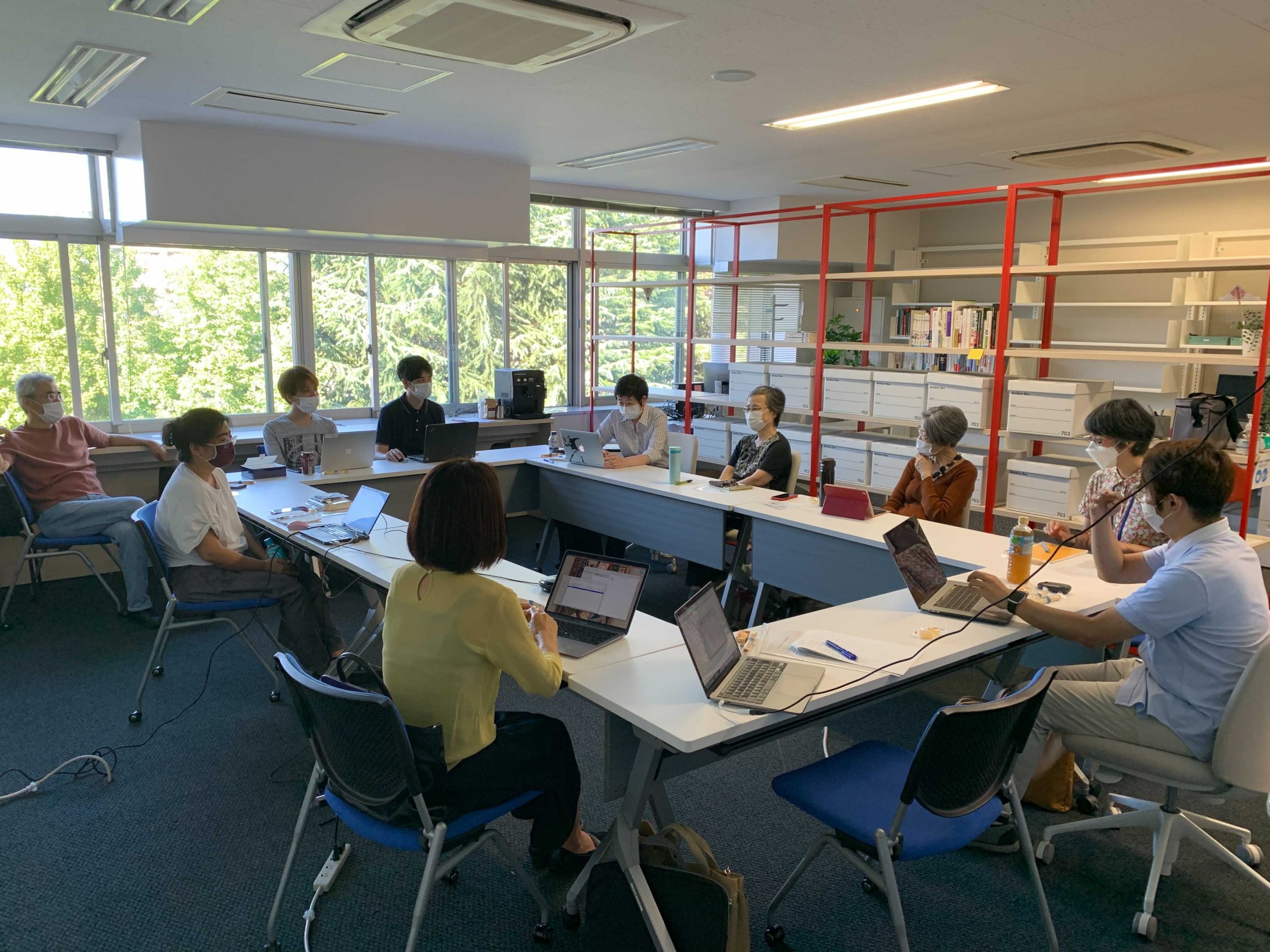
BAIROOM
BAIROOM is the office of the B’AI Global Forum. The members of the B’AI Global Forum hold meetings, workshops, etc. in BAIROOM, which is located at the Asano Campus of the University of Tokyo.